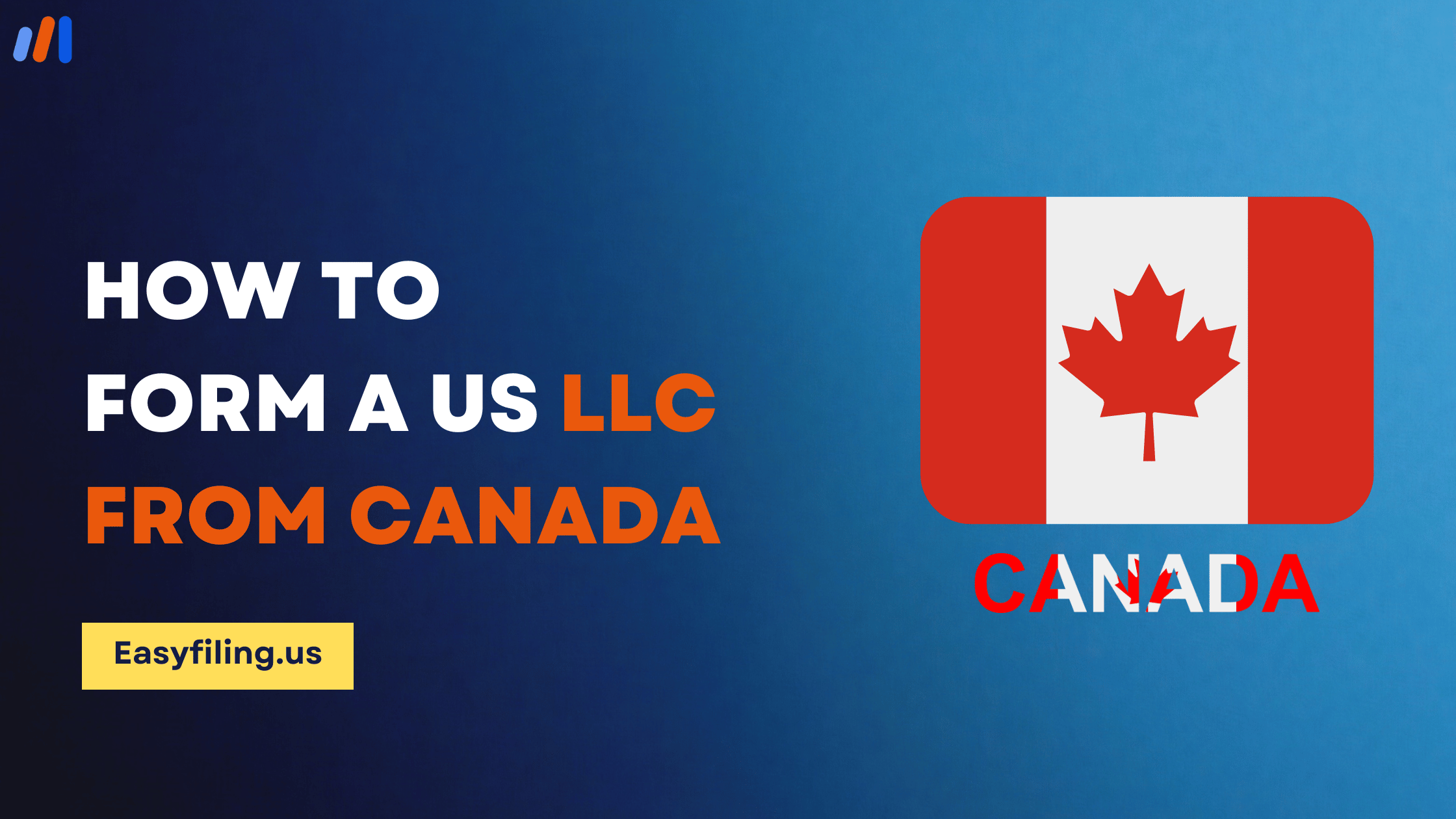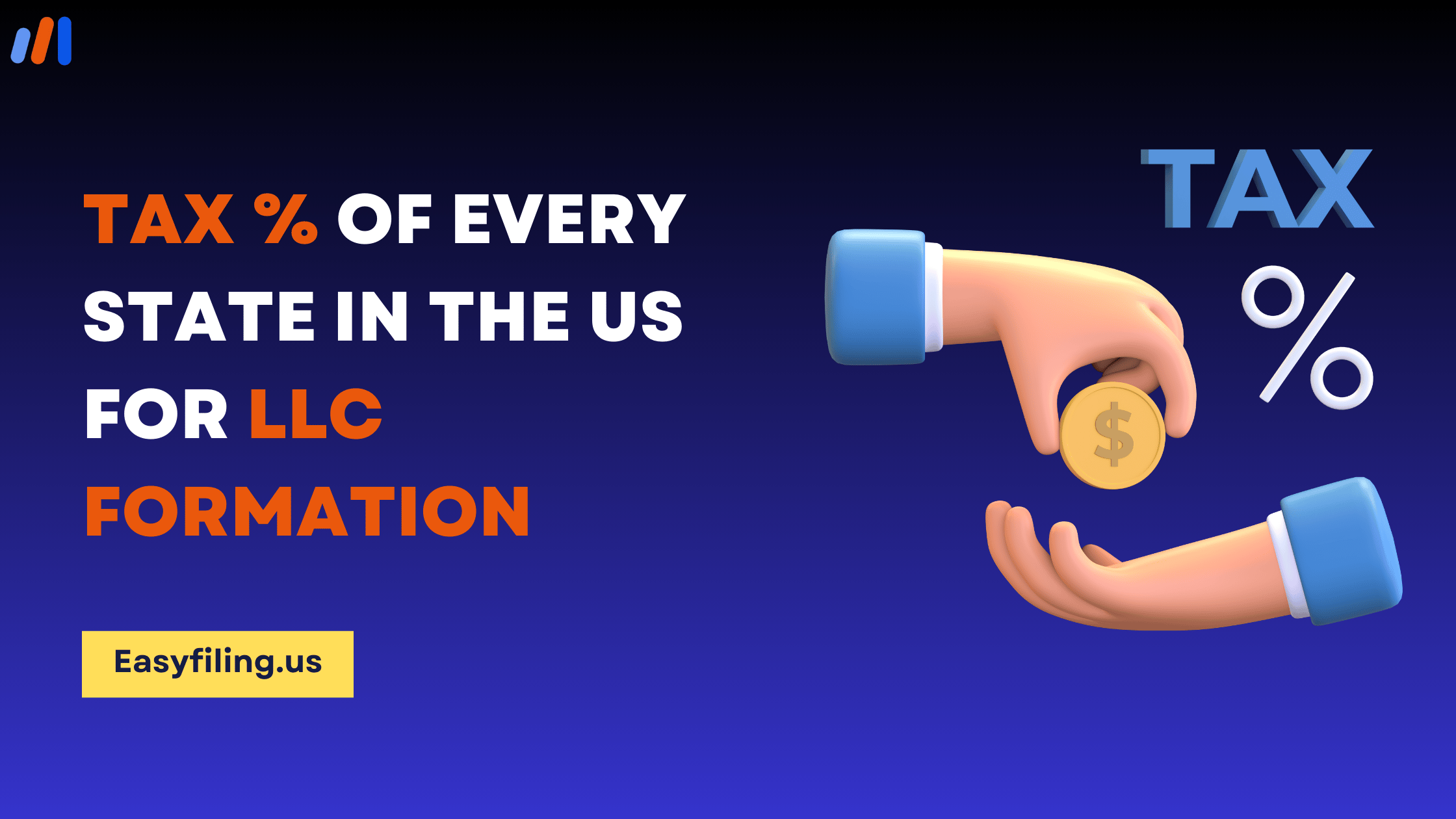Establishing a business in the USA presents an opportunity to explore unparalleled market potential and vast possibilities, proving to be a useful tool for Canadian businesspersons who wish to widen their horizons.
Establishing an LLC in the United States is famous among Canadian entrepreneurs since it offers easier management, better taxation, and more flexibility.
In this guide, you will learn everything you need to know about how to register an LLC in the USA while residing in Canada so that you are well-equipped to go this direction.
Why an LLC?
However, before we go into the process of forming an LLC in the USA, it is important to ask this question why should one go for an LLC:
Separation of Personal and Business Assets: This is the most important reason if you’re a small business owner. Operationally, the members’ assets and the LLC’s debts are kept distinct.
Tax Flexibility: All of these points will help mitigate the tax concentration, which is often found in the taxation of C-corporations Businesses that are incorporated benefit from a merger between two tax systems.
Operational Simplicity: An LLC is easier to run in this aspect than a corporation since there are fewer procedural requirements. There is no need to have regular board meetings or maintain extensive recording systems, so more time can be dedicated to business development.
How to Form a US LLC from Canada

Step 1: Choose a State
The first step is to select a US state for your LLC. Note certain factors that may standard your selection:
State Fees: There are differences in the cost incurred during formation and annual fees for the states, which necessitates a cost-comparison analysis to choose the best price.
Business-Friendly Laws: Most states, for example, Delaware, Nevada, and Wyoming are well associated with pro-business structure laws and legal environments and, hence are very favorable for LLCs.
Nexus: Where there is a physical structure like an office or a warehouse in a certain state, your LLC business may have limitations as to where it is registered.
Step 2: Name Your LLC
A business name is an important aspect hence it must be necessarily considered because it depicts the image to the cut-size market. However, the name should comply with the naming standards of the state that is targeted for registration. It should:
- Not create conflicts with other businesses in the state by ensuring uniqueness of acquisition.
- Include either “LLC” or “Limited Liability Company” within the title which states the business nature more distinctly.
- Refrain from using prohibited terms like “bank”, “insurance,” etc., unless you have proper permission or licenses.
Step 3: Choose a Registered Agent
In the case of firms, the registered agent is important because it is the first point of contact for all legal documents on behalf of the business which include the receipt of all necessary legal notices and service of process. This makes your business in good standing concerning the laws of the state and you are kept in the loop on any legal issues that may affect your business or on any legal obligations that you have to fulfill.
The agent has to do either of the above and this is to be a resident of the state or a business entity that is duly registered to carry on business in the state. In this sense, they would have a street-level address in the state of formation, such as the state of the incorporation of the LLC rather than a Postal Box which ensures they can be reached (most likely during business hours) reliably.
Step 4: Complete the Articles of Incorporation
Place your Articles of Incorporation concerning the preferred state to establish your LLC. This document contains crucial information such as:
- The name of the LLC must fulfill the state rules on name reservation.
- The LLC’s internal governance arrangement, details whether the management will consist of all its members (called member-managed) or be carried out by designated managers (called manager-managed).
Step 5: Draw up an Operating Agreement
In some states, this is optional, but in most cases, it is important to draft operating procedures to state a common understanding. It details out:
- Thus the proposed structure of the business and the profit and loss account of each member.
- It details the powers and duties of each member to increase accountability.
- It covers how members can be added or removed, how disputes may be settled, and other important aspects concerning the administration of business activities so that everything runs smoothly.
Step 6: Get an EIN
A Business Identification Number, also known as a tax identification number, is more commonly referred to as an Employer Identification Number (EIN). It is used for taxation while also serving as the identifying number for your LLC when you open a US bank account.
Request an EIN through the IRS website. However, for non-residents of the USA, this operation cannot be performed online; Form SS-4 must be submitted by physical mail or via facsimile, with all the supporting documents at hand.
Step 7: Get a US Bank Account
To ensure that business activities and personal transactions do not intermingle, it is recommended that a US bank account be opened. This plays a crucial role in building the credibility of finances and making economic interactions easier. Among the items required are:
- The business formation documents of the LLC provide evidence of the business.
- The taxpayer identification number (EIN) for your LLC.
- Identification documents of all members of the LLC as required by the banking laws.
Step 8: Stay In Good Standing
An essential aspect of maintaining your LLC’s good standing is adhering to state laws. This includes:
- Filling out and submitting yearly reports that inform the state about who is involved in the business and what activities have taken place.
- Submitting certain levels of state charges to have your LLC status remain active.
- Managing financial records in an organized way to plan and report tax.
Insights for Canadian Entrepreneurs
Cross-Border Taxation: It is advisable to seek the assistance of an incorruptible treasure to gain knowledge on the cross-border taxation burden as well as everything about benefits that come with treaties between both countries only then will you be able to carry out business tax wisely.
US Presence: When you conduct business outside Canada, particularly in the US, it is important to consider the need for a legal place of business, and whether or not you have any employees as this affects the state registration procedures and compliance.
Adhering to these steps will enable a Canadian entrepreneur to successfully establish a US LLC and re-tap into the American market. For the most appropriate legal and financial services, feel free to contact Easyfiling who understands cross-border businesses to assist you in those intricacies.
Frequently Asked Questions (FAQs)
Can a Canadian citizen own an LLC in the United States?
Yes, owning an LLC in the US is permitted for Canadian citizens. The procedure is almost the same as for American residents, but there could be some additional requirements to register a US tax identification number.
Is it necessary to have a physical presence in the US to incorporate an LLC?
Even though you do not have to have a physical office, you do need a registered agent, which does have to have a physical address in the state in which you set up your LLC.
What quite filings does an LLC have to do annually in the US?
It depends on the state but usually includes an annual report and a franchise tax. In addition, and to all these filing requirements, you may also advocate for compliance with federal tax regulations.
Do I need a US bank account if I open an LLC?
Even though legally you do not have to open it, such an account is very useful for a variety of purposes, including getting paid and paying business expenses.
Is there any advantage and disadvantage that a Canadian citizen can enjoy in the formation of an LLC in the United States?
The advantages are personal liability, the potential for taxes, and a large market. The disadvantages are complicated taxation and high administrative costs.
File Your LLC Today
25$ off with a coupon
Lock in EasyFiling's transparent rates and get lifetime compliance support at no extra cost.
Get Started Now










